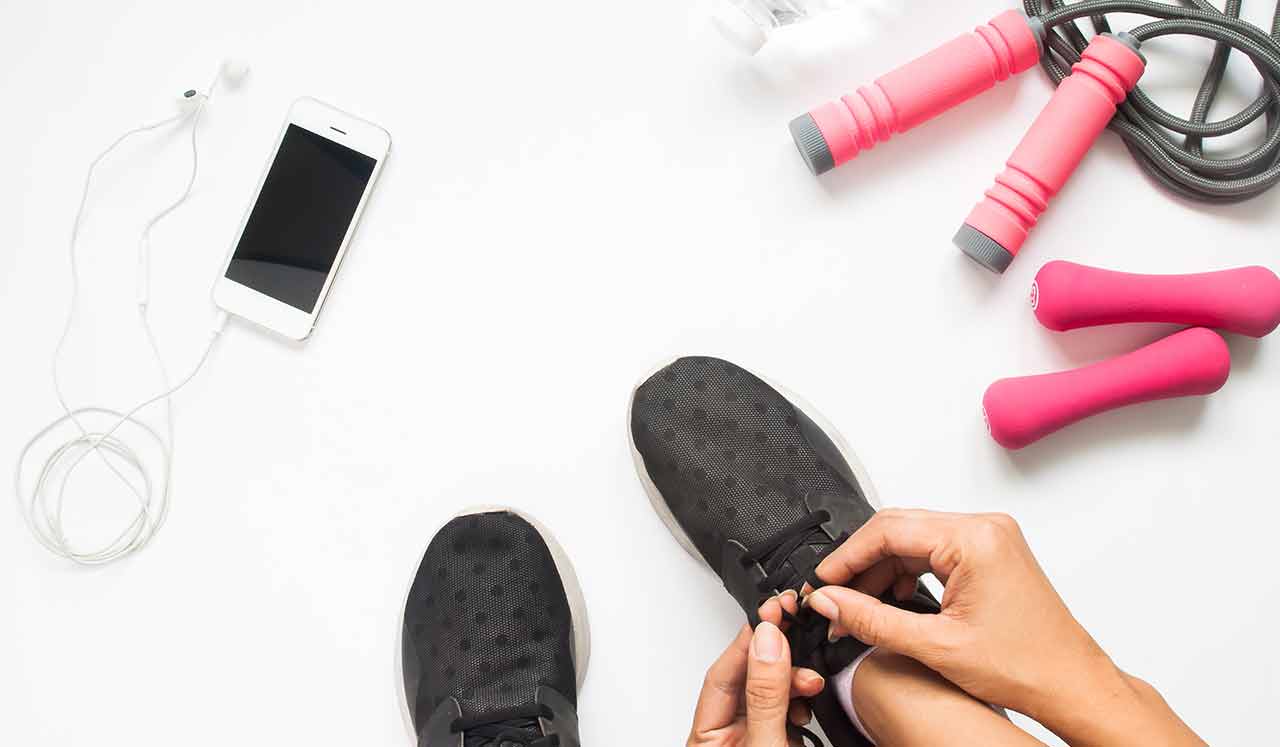Time is precious—even when seeking great health. Some of the busiest people we know, Memorial Hermann doctors and dietitians, share their personal must-heed health hacks to be fitter faster.
1. Grab & Go.
Each night blend the following for a high-protein, high-fiber breakfast: a half cup of dry rolled oats, half cup of milk of choice, half cup of Greek yogurt or one scoop whey protein powder, 1 teaspoon chia or flax seeds and ¼ cup of fresh, frozen or dried fruit to taste. Refrigerate it and you’ll wake up to 25-30 grams of protein, 10 grams of fiber and 420 calories (or less, if you go with skim or low-fat milk). “It’s one of my favorite no-fuss breakfasts,” says Christina Curry, MS, RD, LD, Sports Dietitian at Memorial Hermann | Rockets Sports Medicine Institute – Sugar Land. “Both fiber and protein keep you feeling fuller longer.”
2. Make Peace with Your Plate.
Forget measuring cups, scales and figuring out the latest pyramid scheme. Create a peace sign with a wide avenue between portions: a quarter each for lean proteins (not fried), and another for carbs (no sauce) and the remainder for vegetables, says Dr. Giridhar Vedala, a cardiologist with Memorial Hermann Medical Group in Conroe and The Woodlands. Or measure with your hand for serving sizes: your palm for meat or fish; your thumb for cheese; your fist for pasta, rice or cereal.
3. Mind Your Middle.
If a woman’s waist exceeds 35 inches or a man’s 40 inches they’re vulnerable to Alzheimer’s Disease in their 70s, as reported in the Journal of the Geriatrics Society. “Generally the larger the waist size, the greater the risk of dementia, says Dr. Paul Schulz, director of Memorial Hermann’s Memory Disorders and Dementia Clinics at Mischer Neuroscience Institute at Memorial Hermann - Texas Medical Center. “That’s independent of other risk factors.”
4. Pull the Plug.
Shut down phones, computers and TV two hours before bed to avoid their screens’ light. Your brain reads it as daylight, thus messing with your circadian rhythm, says Dr. Katherine Holzman, a family practice physician with Memorial Hermann Medical Group Cypress. You’ll not only sleep better but lose weight easier since you won’t crave mid-day sugar jolts to stay alert. “Plus, the longer you’re awake, the more time you have to be hungry.”
5. Raise Desks to Raise Heart Rates.
“It’s a great way to accomplish tasks while getting steps,” Dr. Schulz says. “I know a radiologist who raised his desk so he could walk on a treadmill. He gets fit and feels better while reading X-ray and MRI films.”
6. Skirt Supermarket Temptations.
Shop the periphery of the store, where you’ll find whole, fresh produce, fish and dairy, Dr. Vedala says. Avoid dry goods aisles, where sugary, fattening, packaged snacks and sweets seduce.
7. Be a Green God or Goddess.
Just one cup of leafy greens (raw spinach, kale, collards, lettuce) keeps memory fails at bay, notes Dr. Schulz, citing a new American Academy of Neurology study in the medical journal Neurology. Leaf eaters’ minds were crisper, equivalent to people 11 years younger than those of veggie shunners. Struggling? Throw frozen vegetables into your pasta – or better yet buy zucchini pasta.
8. Move It.
If you’re not willing to walk around the block after dinner, then park farther away from your destination or get off the elevator or bus early. “Those steps count in the battle to lose weight – and might clear your head, too,” Dr. Vedala says.
9. Check Out Take Out.
Look online for calorie counts, as chains increasingly provide. When you order, ask that half be boxed, “You limit your portion size without feeling like you’ve sacrificed,” says Dr. Sanjay Maniar, a cardiologist affiliated with Memorial Hermann Southwest Hospital.
10. Go Nuts.
Eating two handfuls of unprocessed, unsalted nuts weekly helps cardiovascular health, Dr. Vedala says. The reason? Walnuts, pecans, almonds and peanuts have an ideal ratio of mono- and poly-saturated fats that thwart artery hardening. “Not all fat is bad.”
Get Your Daily Dose of Health & Wellness
Sign up to receive the latest articles in your inbox.


